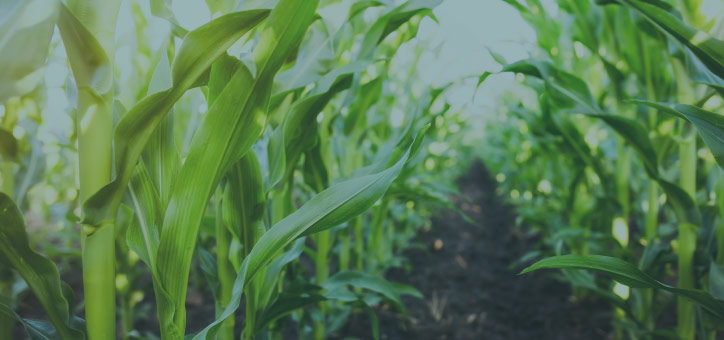If you’re interested in agriculture but don’t want to be a farmer, you’re in luck! Take a closer look at the variety of job opportunities you can consider with an online bachelor’s degree in agriculture.

Does food technology pique your interest? Are you inspired by all things biomaterials-related? Or are you driven to educate others about the production and consumption of food? If so, the institutions listed below can help you on your journey to finding a career in agriculture that also lets you choose the specialty that interests you most.
After all, agriculture is about far more than farming. In today’s world, agriculture is a robust line of work that enables you to work in many different settings in many different capacities. The first step, though, is to get a high-quality education that will help you land your dream agriculture job. The best online agriculture degrees listed below will help you do just that!
What is an Online Bachelor’s Degree in Agriculture?
With a bachelor’s degree in agriculture, you’ll learn about science, technology, and business as they pertain to food production and consumption. You’ll potentially focus on one of four career paths in the agriculture industry:
- Management and business
- Science and engineering
- Food and biomaterials production
- Education, communication, and government services
Regardless of which specialization you pursue, you’re likely to take similar core online courses. Your studies will likely include:
- Agricultural financial records
- Legal environmental business
- Food technology
- Agricultural business communications
Additionally, education programs might include courses that focus on sustainability, environmental science, and agricultural economics. You might take agronomy and agribusiness management courses, too. Applied science and life sciences courses are often part of the curriculum as well.
Most undergraduate programs in agriculture require a minimum of 120 hours of coursework. Some programs require that you complete even more credits than that. Be sure to check the graduation requirements for any programs you’re considering, as even a couple of extra courses can be a significant output of time and money to complete.
The beauty of many online agriculture schools is that they offer far greater flexibility. Since you don’t have to attend class on campus, you’re free to tend to your studies on your schedule. Likewise, with online learning, you don’t have to commute to school, spend money on gas and parking, and in many cases, online programs don’t require that you pay added fees that on-campus students must pay (e.g., sports and facility fees).
But, aside from these differences, the degrees earned from agriculture schools online are just like the ones that on-campus students earn. In fact, your online degree likely won’t make the distinction that your studies were done remotely. Best of all, many online ag degrees don’t make a distinction between in-state and out-of-state tuition, so you might be able to get your degree for less money!
Furthermore, if you decide you want to get a graduate degree in agriculture, an online bachelor’s degree in this field will prepare you just as well for advanced studies as an on-campus degree. You can begin your graduate studies with the confidence that you took the same classes, from the same professors, and passed the same requirements to get your degree as your classmates on campus.
How Much Can You Earn With an Online Ag Degree?
A science degree in agriculture opens a variety of career opportunities in the food science industry. With just an associate degree, you can prepare for a job as a technician in food science. Be aware, though, that the median pay is $44,700 annually. This is significantly lower than what a bachelor’s-level food scientist makes, which is $74,160 per year, according to the US Bureau of Labor Statistics. The difference in pay isn’t only due to the difference in education level, but it’s a significant factor.
You could also be employed as an agricultural engineer. This position pays even more in annual median salary: $82,640. Again, the higher pay is due in part to the higher level of education required. The fact that this is an engineering position is another reason why the median pay is so good.
While farmers, ranchers, and agriculture managers gain a variety of beneficial technical and scientific skills from an online farming degree, a degree is not required for a career in those fields. Farmers, ranchers, and agriculture managers typically earn a median annual salary of $73,060. Agriculture educators and teachers, meanwhile, can teach at the high school level with a bachelor’s degree. Teachers make about $61,820 annually.
If teaching at the collegiate level interests you, you’ll need additional education – likely a master’s degree, if not a doctorate. Fortunately, there are many graduate programs in agriculture education that can prepare you for a future career teaching at a college or university. Online graduate programs in this field abound, too, so you can continue your online education!
What is Required For aBachelor’s Degree in Agriculture Online?
Pursuing agricultural degrees online typically takes four years of coursework if you’re a full-time student. That said, many online programs are created to be flexible so if you work full time, you can take more time to earn your degree.
Admission into accredited agriculture programs begins with an application. Aside from filling out your application, you’ll need to meet admission requirements. These requirements vary from one college of agriculture to the next. But, they are likely to include, but are not limited to:
- High school transcripts (or proof of having a GED)
- A minimum GPA of 2.0
- Transcripts from any colleges you’ve already attended
- ACT or SAT scores
Additionally, some programs require online students to submit a personal statement that explains your educational goals, your strengths and weaknesses, and your reasoning for applying to the program. In some cases, you might even be asked to take part in an interview with a selection committee. This is pretty rare at the undergraduate level, though.
As mentioned earlier, most ag degrees online require a minimum of 120 semester credit hours of coursework for completion. Those credits encompass a variety of categories of courses, such as:
- General education courses, like math and science
- General education electives
- Major area courses, such as those specific to agriculture
- Major area electives
You might also be required to complete a minor. If that’s the case, you’ll need to take around 12-18 credits specific to the minor area of study. Likewise, since the field of agriculture science and business offers a variety of career choices, there are special professional certificate programs, internships, and field experience opportunities readily available with many programs.
What are the Best Online Degrees in Agriculture?
OSR uses six data points to determine the rankings below. There are three school-wide criteria and three program-specific criteria.
For school-wide. criteria, OSR uses student satisfaction, admission rates, and the number of programs the school offers online. For program specific criteria, OSR checks:
- The median debt of graduates from that program
- How many degrees are offered within that program’s umbrella department
- What percentage of students at that school graduated from that department
The six statistics are displayed by each school. The sliding bar under each statistic represents how that school compares to other US institutions. “Not reported” means a school did not release that information to the US Department of Education. A more detailed description of the OSR process can be found on the methodology page.
Let’s take a closer look at some of the cheapest online agriculture degree programs available today.










